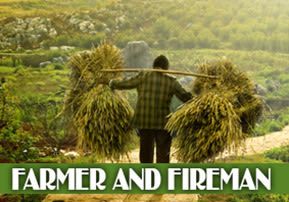
Farmer and Fireman
What is a degree in theology worth in a Lutheran country when you leave the ministry and the Church? Later on, after moving to Israel, I found myself asking the same question.

Strangers No More, Part 4
My father had a special interest in forestry, a rather important field in Finland where the value of the vast forest landscape has earned it the nickname “green gold.” Finland not only harvests and processes wood; the replanting of the harvested areas and cultivating the newly planted young forests demands knowledge of agricultural science. Despite tons of forest products being exported every day, the total volume of forest growing in Finland is increasing, not decreasing, thanks to the obligatory replanting scheme. My father taught this to me out of interest for the well-being of the soil he worked and knew so well. This was well before the green movement or ecological issues were high on any political agenda.
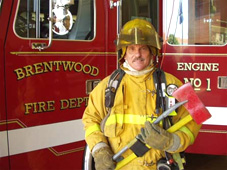 Our small town had a volunteer brigade of fire fighters and my dad was the proud fire chief. In the fire brigade, there was also a connection to preserving the forest. During the few hot summer days, lightning would strike and start a forest fire. Once there was a huge fire that threatened the whole village. It had been raging for several days and the exhausted firemen needed water, not only for the fire, but also to quench their terrible thirst.
Our small town had a volunteer brigade of fire fighters and my dad was the proud fire chief. In the fire brigade, there was also a connection to preserving the forest. During the few hot summer days, lightning would strike and start a forest fire. Once there was a huge fire that threatened the whole village. It had been raging for several days and the exhausted firemen needed water, not only for the fire, but also to quench their terrible thirst. My father was a young bachelor at the time, and he joined in to rescue the village from destruction. The fight continued for days. The girls from the nearby community did their share by bringing drinking water for the thirsty firemen. Along came a rather shy, young girl, perhaps in her late teens. She approached the men with her water bottle, and headed straight for the firefighter whom she felt needed her water the most. This man, some five years older, told us, his children, several decades later, how magical this water was. In the heat of the summer, this water did not kill the thirst, but rather lit another fire – the fire of love. The young girl named Linnea and the firefighter Runar married a couple of years later and began their family and their farm on the plot of land in the forest where they had met.
My father was quite a storyteller. When my wife and I were married, our wedding reception took place in the green garden of my home. My father paid tribute by telling us about the love ignited between him and my mother in that magical spot so many years earlier. I could see my mother’s amusement. She continued to be the shy, but always supportive, partner to my father. She did not enjoy public appearances the way my father did. How could a farmer use his talents for public speaking? My father did not give speeches to herds of cows in the fields or to the tall pines standing erect in the forest. His personality made him a leader. In his world, which included the farming community, the forestry organizations, and the Church, he was a member of several boards of directors. In many of them he served as chairman. These were the circles where he put his speaking talents to good use.
In her own way, my mother was active in her ladies’ groups. Sometimes I wonder if my mother was really the shy girl she seemed, or was it just her manner in the shadow of my dominant father. Theirs was a good relationship. I remember only warmth and friendliness in my home. I was born after the Second World War, and saw very little of the real difficulties my parents faced during their lifetime.
Soon after the young couple had their first son, the Second World War began. Like most other Finnish men my father served five years in the army. For five cold winters he fought the Russians. Finland had no choice but to go to war with her neighbor, not because of sympathies with the Germans, but rather, had Finland not gone to war, she would have been invaded by the Russians. Later towards the end of the war, Finland fought against the Germans when they tried to exploit Finnish territory for their warfare. The result was a devastating war in which the Nazis burned and destroyed much in their path, as the Finns chased them out of Lapland in the north. During the war my father was away from home, returning only on leave for short periods of time. My brother Borje and sister Berit were born before the war was over. My oldest siblings were married and had moved out of home before I was old enough to have any memories of that time. My brother closest to me in age, Birger, is “only” ten years older than me.
Borje took over the farm together with his wife Saga, and developed it into a modern, high-production enterprise, and, in turn, handed it down to their son Daniel. Borje’s great interest – even greater than farming – was music. In his adult years he studied for his music diploma. He served in the local parish as cantor-organist for several years until his early death at the age of fifty-eight. My oldest brother was very devoted to his faith and was much loved among the parish members.
Berit married her teenage sweetheart Bengt and remained in our hometown. She studied accounting and worked at a local bank until her retirement. I remember as a young boy how we always expected them home for a Sunday afternoon visit. Being the only daughter, Berit was special to my mother, and the weekly visits were very important to her. My sister never once let our mother down.
I have some memories of my brother Birger living at home at the same time as me. But because of the age difference, I felt as if I was an only child. No sibling rivalry, no one to compete with, for better or for worse. By the time Birger married Benita, whom he met at college, the new trend for young Finnish couples was to move to Sweden. In our part of Finland, a minority of the population spoke Swedish. As far back as we could trace – to the seventeenth century – our family had lived in Finland, but the mother tongue was Swedish. Moving to Sweden was therefore not a drastic step. The neighboring country sometimes offered advantages for studies and work and the language for us was only a benefit. I believe for Birger, as for myself, that the Finnish language was never part of who we were. Birger and his wife moved to Uppsala where he studied theology and became an ordained minister in the Church of Sweden, a position he holds to this day. As a vicar in a large congregation, Birger is respected and admired both amongst his colleagues and the community at large.
As I matured, I regarded Christianity and practical Church life as a very important and natural part of life. I never felt any urges to rebel against this lifestyle. I had a spiritual need, and in my childhood and teenage years, that need was fulfilled.
I graduated from GSSL, Gamlakarleby Svenska Samlyceum in 1973 when I was twenty years old. The day before graduation I became engaged. My future wife Runa and I exchanged rings as a symbol of the promise we made to each other. We had met a few years earlier. She was a member of the same youth choir and I was playing in the brass band. The choir and the band often went on tours together to perform in various parts of the country. I remember the first time that Runa and I spoke to each other. We were playing one evening in a church, and during the interval Runa came walking down the aisle with some girlfriends. When I encountered the girls, I only had eyes for her and said,”Hi Runa.” She blushed of shyness and was wondering why I said hi only to her. She found out and now the celebration for the graduation was combined with our engagement party. We were not the only couple to find each other in our circle of friends – our youth group consisted of a couple of hundred people and functioned very well as a matchmaking pool.
When I graduated from college and continued on to university, the only subject for me was theology. I have considered many times since my conversion to Judaism how easy life would have been if I had studied anything but religion. My wife and daughters have wondered the same thing, especially during the difficult years after leaving the Church. What is a degree in theology worth in a Lutheran country when you leave the ministry and the Church? Later on, after moving to Israel, I found myself asking the same question. Why did I make it so hard for us? My questions longed for an answer. I do not accept that my choices were wrong, nor will I accept there was no purpose in them. I am going to continue to look for the answer until I find it. I owe it to my wife and daughters. They have done more than just supported me, they have chosen to join me in all my difficult decisions.
(Strangers No More, by Shlomo Brunell. Reprinted with courtesy of Gefen Publishing House 2005 www.gefenpublishing.com)








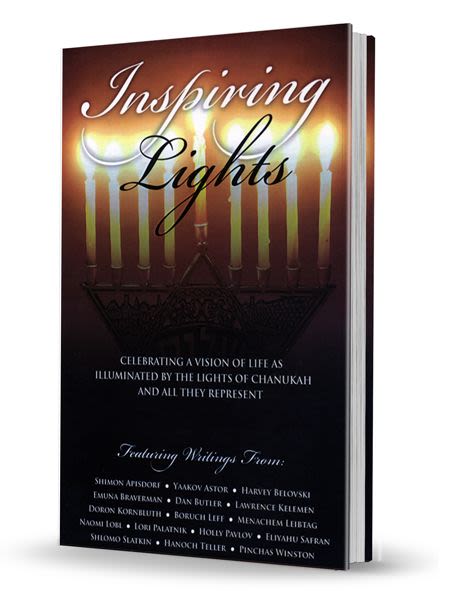
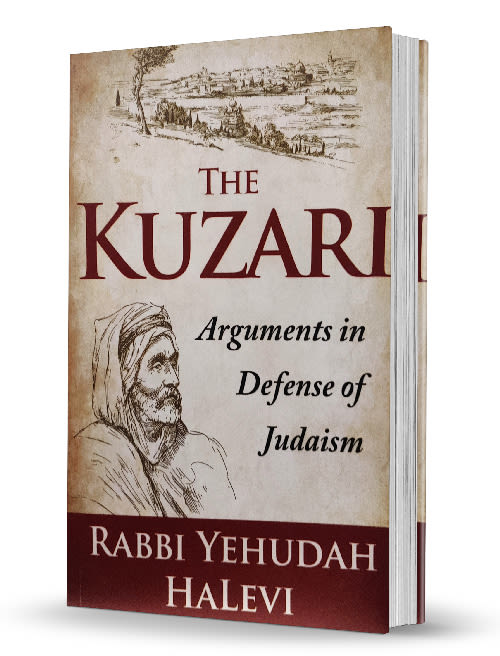

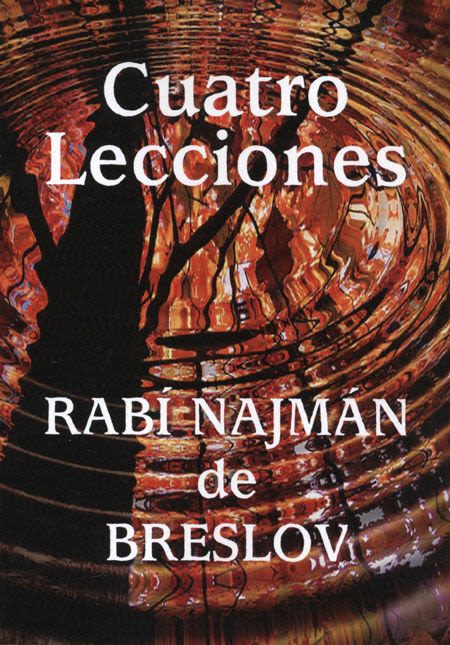


Tell us what you think!
Thank you for your comment!
It will be published after approval by the Editor.